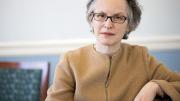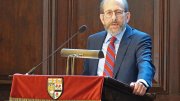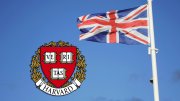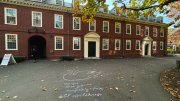Harvard Strategy Head
President Drew Faust has appointed Leah Rosovsky ’78, M.B.A. ’84, vice president for strategy and programs. She will focus on Harvard’s international agenda, Faust’s “One Harvard” initiative, and searches for senior University appointees, among other responsibilities. Rosovsky (above) returns to Harvard from the School of Arts and Sciences at Tufts, where she has been executive administrative dean since 2006; she was previously involved in development for the Faculty of Arts and Sciences (FAS), and then in senior administrative positions in University Hall. In crossing the Yard to Massachusetts Hall, she follows family tradition: her father, Henry Rosovsky, Geyser University Professor emeritus, served as dean of FAS, acting Harvard president, and a member of the Corporation (and is now president of Harvard Magazine Inc.).
Rhodes and Marshall Scholars
Seven members of the College class of 2013 have been awarded Rhodes Scholarships: Aiden C. de B. Daly, a computer-science concentrator, from New York City and Quincy House; Julian B. Gewirtz, a history concentrator, from Hamden, Connecticut, and Quincy House; Allan J. Hsiao, a concentrator in economics and East Asian studies, from Louisville, Kentucky, and Adams House; Dalumuzi Mhlanga, a social-studies concentrator, from Bulawayo, Zimbabwe, and Mather House; Benjamin B. H. Wilcox, a history concentrator, from Winnetka, Illinois, and Quincy House; Nina M. Yancy, a social-studies concentrator, from DeSoto, Texas, and Quincy House; and Phillip Z. Yao, a physics concentrator, from North Caldwell, New Jersey, and Winthrop House. Mhlanga was one of Zimbabwe’s two Rhodes winners; the other was Naseemah Mohamed ’12, a former Eliot House resident, also from Bulawayo, who concentrated in social studies and African and African and American studies. In addition, Madeleine E. Ballard ’11, a social-studies concentrator and former Quincy House resident from Baie d’Urfé, Quebec, won a Canadian Rhodes—yielding a grand total of nine winners. (Naseemah Mohamed’s sister, astrophysicist Shazrene Mohamed ’04, won a Rhodes of her own in 2004, making the Mohameds the first pair of sisters to win scholarships in Rhodes history.)…Harvard also gained two Marshall Scholars: Aditya Balasubramanian ’12 (’13), a history concentrator from Leverett House and Bethesda, Maryland, and Alex Palmer ’12, a social-studies concentrator formerly of Quincy House, from Elm Grove, Illinois.
edX and Tex, and More
The Harvard-MIT online learning joint venture edX has taken on a fourth partner, the University of Texas System (following the earlier affiliation of University of California, Berkeley). Texas officials expressed particular interest in using the technology for large-enrollment introductory and general-education classes—thus broadening edX offerings beyond the initial upper-level courses introduced this past fall—and focusing on for-credit instruction. Both initiatives are consistent with edX’s November announcement that it will partner with Bunker Hill Community College and MassBay Community College to offer a blended online and in-class computer-programming course. That initiative is funded by the Bill & Melinda Gates Foundation, which focuses on enhancing students’ basic skills and improving learning outcomes and graduation rates. A fifth partner, Wellesley—the first liberal-arts college to affiliate—joined edX in December. And HarvardX is gearing up to offer four online courses in the spring term, following two this past autumn, plus many “modules”—shorter units focused on discrete learning objectives. Separately, 2U and a consortium of 10 universities—including Duke, Emory, Northwestern, Notre Dame, and Washington University—announced full-credit, online, full-cost undergraduate courses, with selective admissions.
Alcohol Adjustments
The Faculty of Arts and Sciences enacted new undergraduate alcohol policies at its November 6 meeting. The rules detail, among other measures, registration of private parties in student suites, the counseling hosts must undergo, and the requirement that “ample water, non-alcoholic beverages, and food” be provided—and that alcohol purchases be “scaled for the reasonably anticipated number of attendees of legal drinking age.” Sanctioned events may offer “only beer, wine, and malt beverages,” but mixed drinks with hard liquor in specified quantities may be served at House formals. A primary concern is ensuring that new College students realize that they must comply with state laws. Unlike their peers nationwide, 70 percent or more of enrolling freshmen are considered “naive” (not experienced in) drinking—a percentage that declines to the national average (more than 50 percent of students this age have significant experience with alcohol) during their first few months on campus.
On Other Campuses
Yale in early November appointed provost Peter Salovey, a psychology professor, as its twenty-third president, succeeding Richard Levin, whose 20-year term will end next June.…Dartmouth tapped alumnus Philip J. Hanlon, who graduated in 1977, as its next president, beginning July 1. A mathematician who is now provost and executive vice president for academic affairs at the University of Michigan, he also serves on the advisory board of Coursera, the online education company.…Princeton’s search for a successor to Shirley Tilghman continues.…Seeking to better prepare students for practice, New York University School of Law has introduced several curricular changes, including a required financial-literacy course and options for a third-year study-abroad experience, a semester in Washington, D.C., and the opportunity to specialize in a field of law.…Columbia, Cornell, and Yale have partnered to offer instruction in less commonly taught languages at each institution, using live videoconferencing and small classes (12 students maximum); the program began with Romanian and Dutch, and is now expanding to 10 more African, Asian, and Eastern European languages.
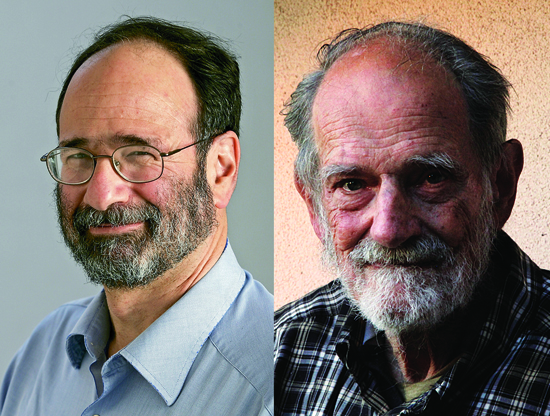
From Left: Courtesy of the Harvard Business School; Reed Saxon/Associated Press
Nobel Notables: Alvin E. Roth (far left) and Lloyd Shapley ’44 (left) shared the Nobel Memorial Prize in Economic Science. Roth, an experimental economist, has been Gund professor of economics and business administration, with a dual appointment at the Business School and in the Faculty of Arts and Sciences; he departs for a professorship of economics at Stanford as of January 1. Shapley, professor of mathematics and economics emeritus at UCLA, is a leader in the field of game theory. David J. Wineland, Ph.D. ’71, of the University of Colorado, shared the Nobel Prize in physics.
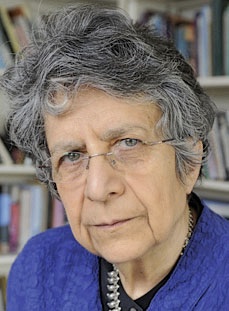
Courtesy of Grawemey Award
Leila Ahmed
Nota Bene
Religious recognition. Thomas professor of divinity Leila Ahmed has received the 2013 Grawemeyer Award in Religion for her recent book, A Quiet Revolution: The Veil’s Resurgence, from the Middle East to America; the recognition comes with a $100,000 honorarium. Ahmed’s research was described in “The Veil’s Revival” (September-October 2011).
Early action accelerates. The College received 4,856 early-action applications for admission to the class of 2017, up 15 percent from 4,228 last year, when the program resumed after a four-year hiatus. Most other Ivy League schools also reported more early applicants this year, as students seek an admissions edge.
National Book Honorand. David R. Ferry, Ph.D. ’55, poet, translator, and professor emeritus of English at Wellesley, has won the 2012 National Book Award in poetry for his new collection, Bewilderment (Chicago).
J.d tv. Harvard Law School has begun using videoconferencing to conduct interviews of applicants for admission to the J.D. program—and will offer more candidates the opportunity for an interview; for the past six years, interviews have been conducted telephonically.
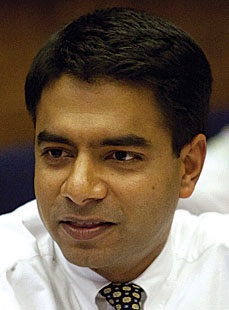
Photograph Kris Snibbe/Harvard News Office
Amitabh Chandra
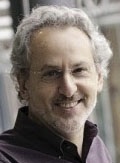
Photograph Stephanie Mitchell/Harvard News Office
Donald E. Ingber
Medical honor. The Institute of Medicine elected as members Amitabh Chandra, professor of public policy and director of health policy research at the Harvard Kennedy School, and Donald E. Ingber, Folkman professor of vascular biology and professor of bioengineering. Ingber is founding director of the Wyss Institute for Biologically Inspired Engineering (see “Designing from Life,” May-June 2011).
Friending the Faculty. The office of the senior vice provost for faculty development and diversity has deployed social-media tools to knit Harvard’s far-flung professors together: a tool to show the members where they all live, in case they want to carpool or meet outside the campus (see the “geomap” at www.faculty.harvard.edu); and one they can use to find babysitters, pet walkers, or other helping hands from within the community.
Notable clinician. The Institute of Medicine conferred its Lienhard Award on Donald M. Berwick ’68, M.D.-M.P.P. ’72, lecturer on healthcare policy and former administrator of the Centers for Medicare and Medicaid Services. The award recognizes his career of leadership in establishing clinical quality improvement, which catalyzed a national effort to enhance medical care and safety.
Miscellany. The Kennedy School’s Center for Public Leadership conferred its biennial Gleitsman Citizen Activist Award on Rebecca Onie ’98, J.D. ’03, CEO of Health Leads, which aims to assure that the healthcare system addresses all patients’ basic needs. The award is accompanied by a $125,000 prize; Onie also received a MacArthur Fellowship for her work, in 2009.…Margaret H. Marshall, Ed.M. ’69, Ed ’77, L ’78—a past University vice president and general counsel, and retired Chief Justice of the Massachusetts Supreme Judicial Court—has received a Lifetime Achiever Award from The American Lawyer; the honor noted her “career working to ensure that courthouse doors are open to all.” (Marshall is an Incorporator of Harvard Magazine Inc.)…The Baker Library historical collections at Harvard Business School have received the papers of An Wang and Wang Laboratories Inc., from 1948 to 1992, an important resource in documenting early innovation in the New England-based computer industry; Wang Laboratories was especially known for its pioneering word-processing equipment.…Alpha Phi will begin recruiting next spring, making it the fourth campus sorority to be recognized; the others are Kappa Kappa Gamma, Delta Gamma, and Kappa Alpha Theta. There are three fraternities. During each of the past two seasons, The Harvard Crimson reported, about 250 undergraduate women rushed sororities.
